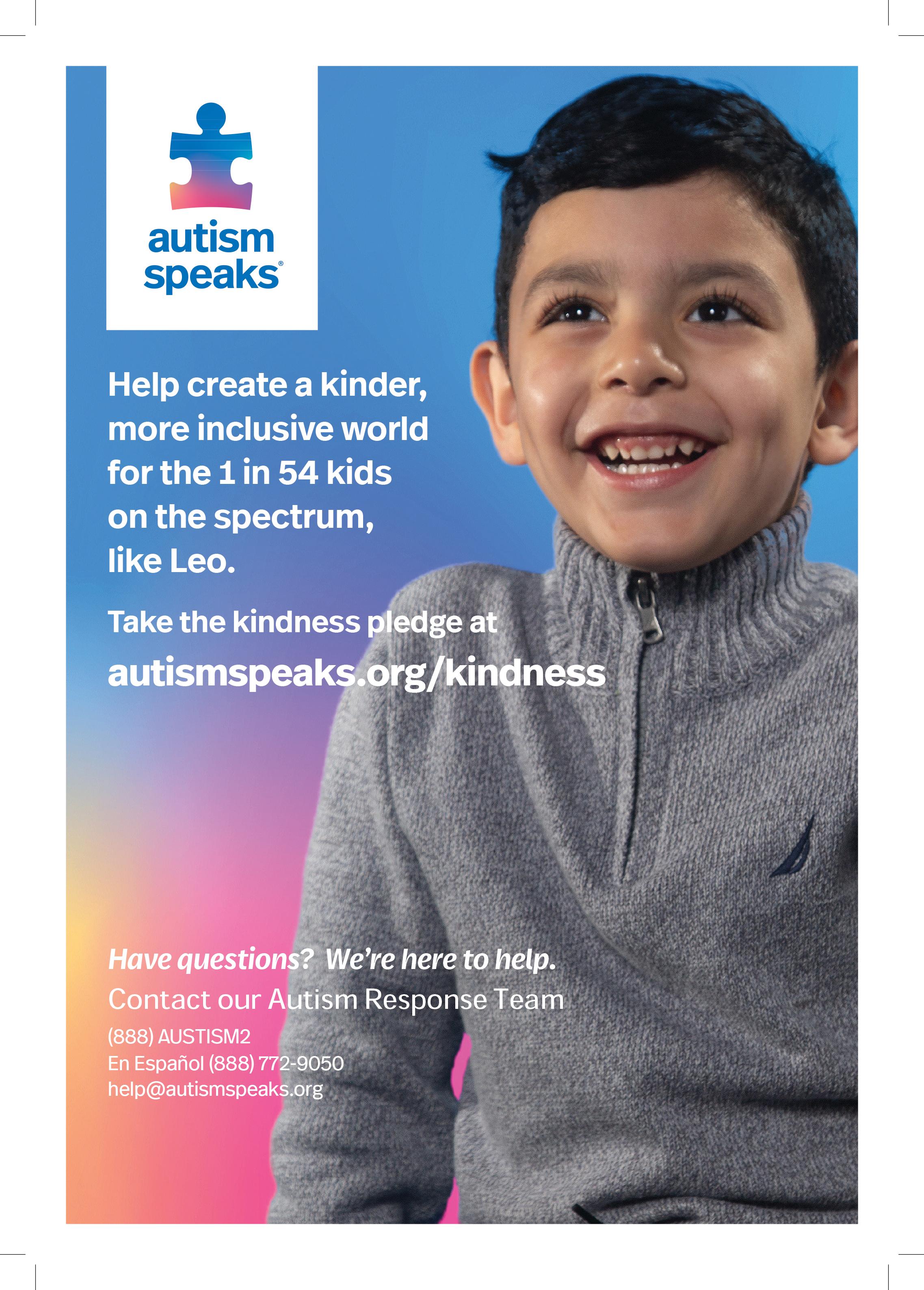
3 minute read
The importance of relationship-building
ADVOCATING FOR YOURSELF AND OTHERS By Judith Ursitti, director of state government affairs for Autism Speaks
“I WANT WINGS.”
Advertisement
Puzzled, the local congressman tilted his head and looked at my son, Jack, wondering aloud if he was requesting an airplane ride. Jack has severe autism and has little spoken language, so he typed this request for wings on his iPad. Jack continued to gaze at the congressman, patiently waiting for the appropriate
Having heard this phrase many times through the years, I smiled and told the congressman that what Jack wanted was to head to our favorite local steakhouse and order some buffalo chicken wings. Our congressman laughed knowingly and promised Jack a lunch date sometime soon. We all smiled, shook hands, said our goodbyes and went on our way.
I had taken Jack and his sister to meet our new congressman, Joe Kennedy, at an office hours event at our town library. The meeting was short — maybe five minutes — and I spoke to the congressman about autism and advocacy. Jack didn’t interact a great deal other than to ask for wings on his iPad. But with just that one quick interaction, Jack left a lasting impression on the congressman and his staff.
A couple of months later, I called the congressman’s local office to ask that he sign on as a co-sponsor of the Autism CARES Act, the foundation of the federal government’s efforts can engage in their own way and at their own pace.
Relationship-building is key to authentic advocacy. Like Jack did, I encourage people to take advantage of the opportunity to meet elected officials when they are in the community. Autism Speaks hosts numerous state and federal “Hill Days” every year which allow advocates to gather in a public, organized way to meet with legislators. response.
For those unable to attend events in person, social media and e-mail are great
Judith Ursitti, director of state government affairs for Autism Speaks, and her son, Jack. alternatives that can help build relationships with elected officials. around autism and the primary Autism Speaks offers an source of federal funding for opportunity to get involved in autism research, services, training advocacy efforts on a regular basis and monitoring. I identified with the Autism Speaks Volunteer myself as a constituent and started Advocacy Ambassador Program, to share some information about the a grassroots program designed to legislation. Before I could get the build relationships between first sentence out, the staff person constituents and legislators at the on the other end of the phone federal level. interrupted me, asking, “Wait, are Advocacy Ambassadors share you Jack’s mom?” I almost dropped personal experiences and information the phone. on policies related to autism
It turns out Jack had made an and serve as the main points of impression. Why? Because, in his contact for their respective federal authentic way, Jack was an advocate. legislator(s). Ambassadors work Our congressman signed on as a codirectly with Autism Speaks staff in sponsor right away. both local and Washington, D.C.,
When thinking about the word offices to implement a variety of “advocacy,” many impressions can initiatives. Currently, this diverse come to mind: maybe an image of group of advocates includes more a determined throng of individuals than 300 volunteers from 46 states marching up the steps of a grandiose and the District of Columbia, capitol building, or maybe of including people with autism, someone in a business suit speaking family members, lawyers, teachers, eloquent testimony at a legislative healthcare providers and more. hearing. But advocacy is so much For more information about getting more than that. Authentic advocacy involved with advocacy efforts, visit is something with which everyone autismspeaks.org/advocacy.



